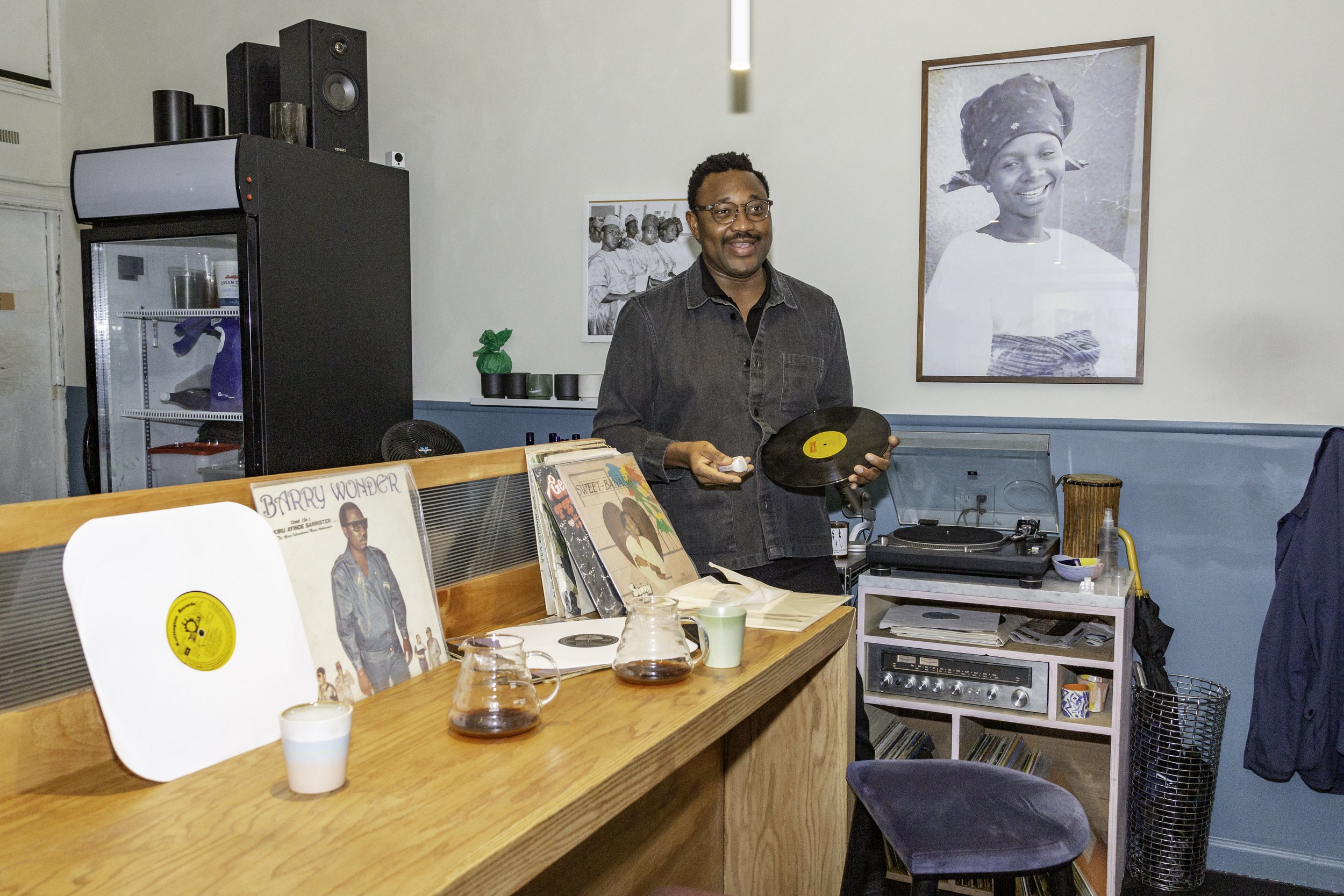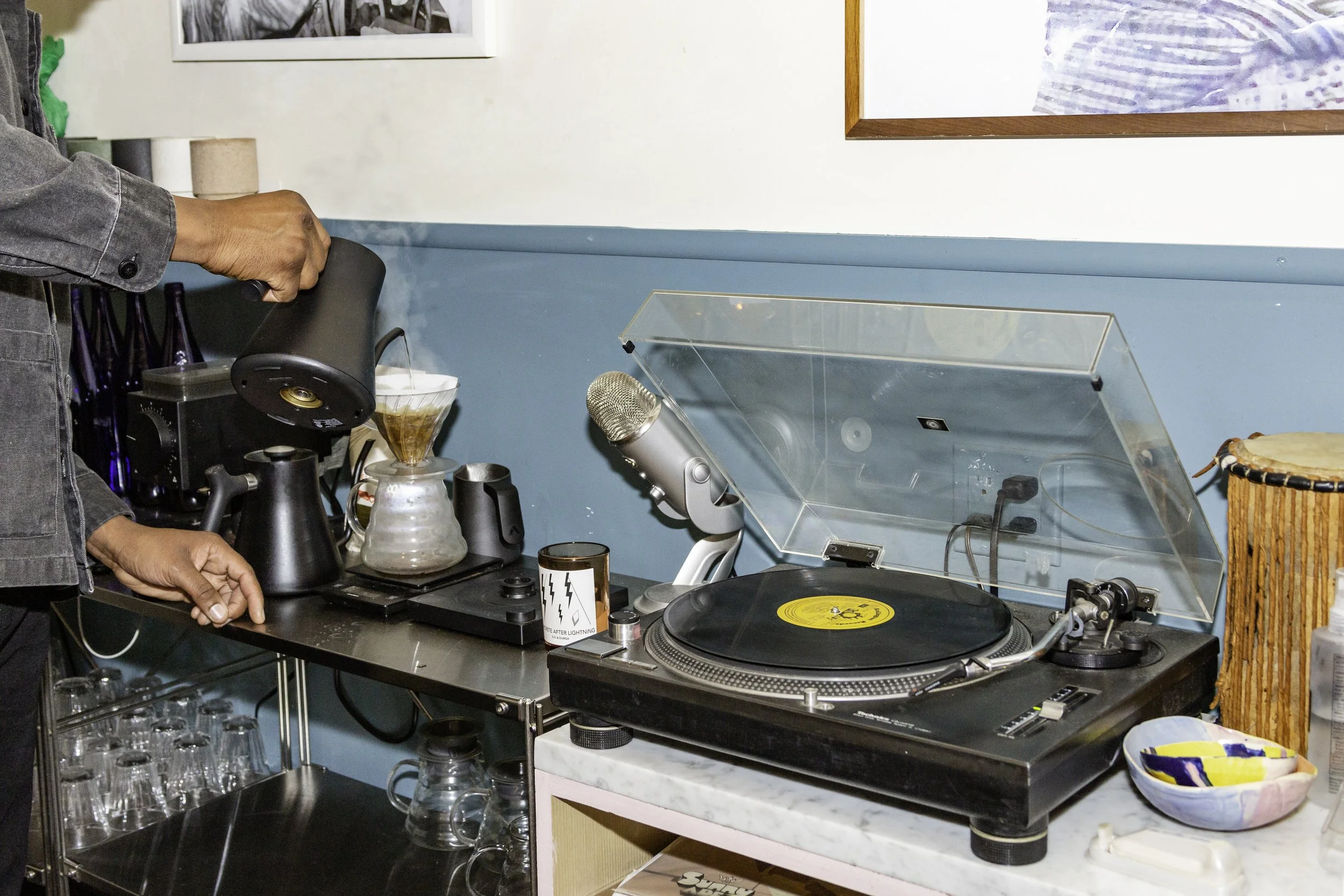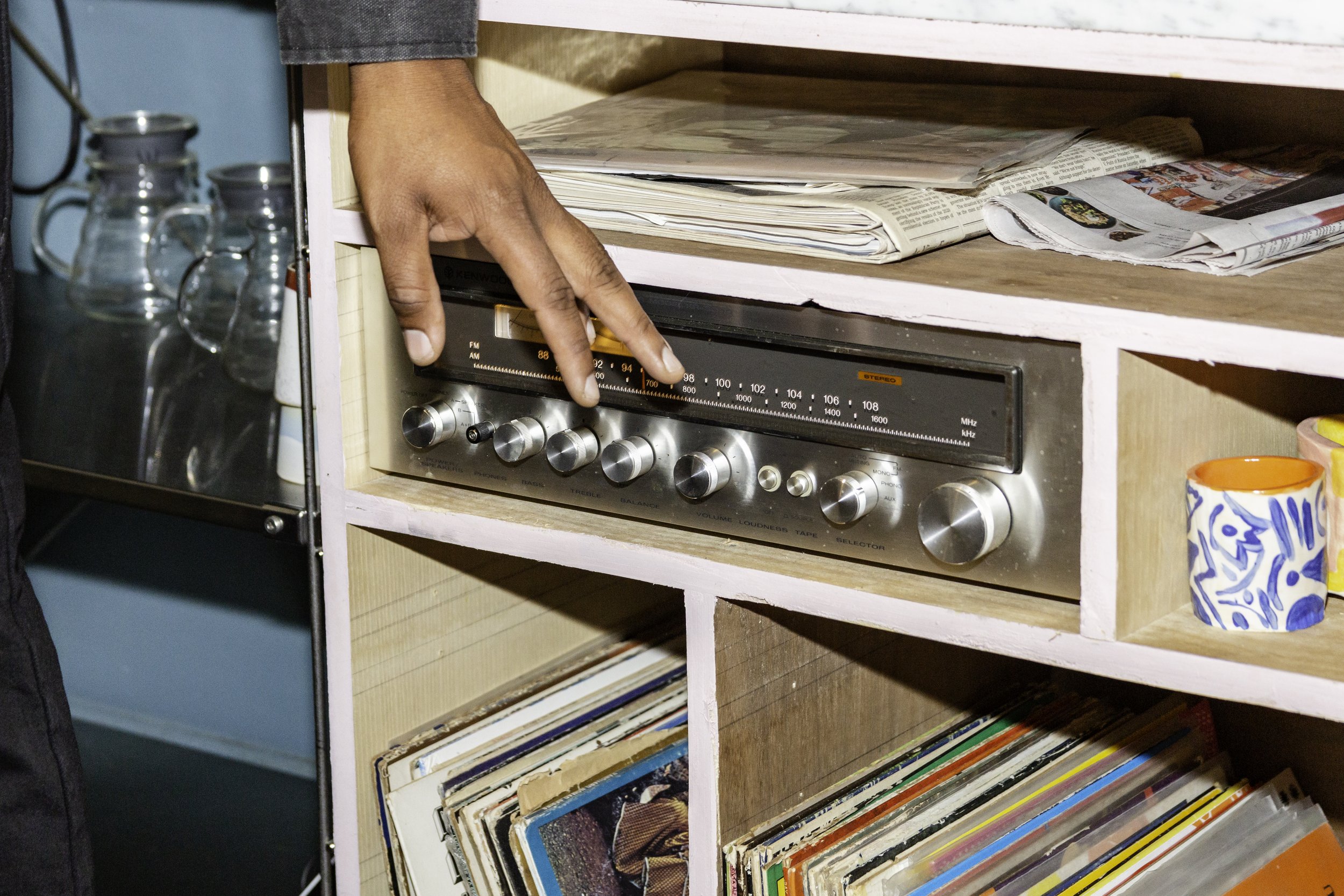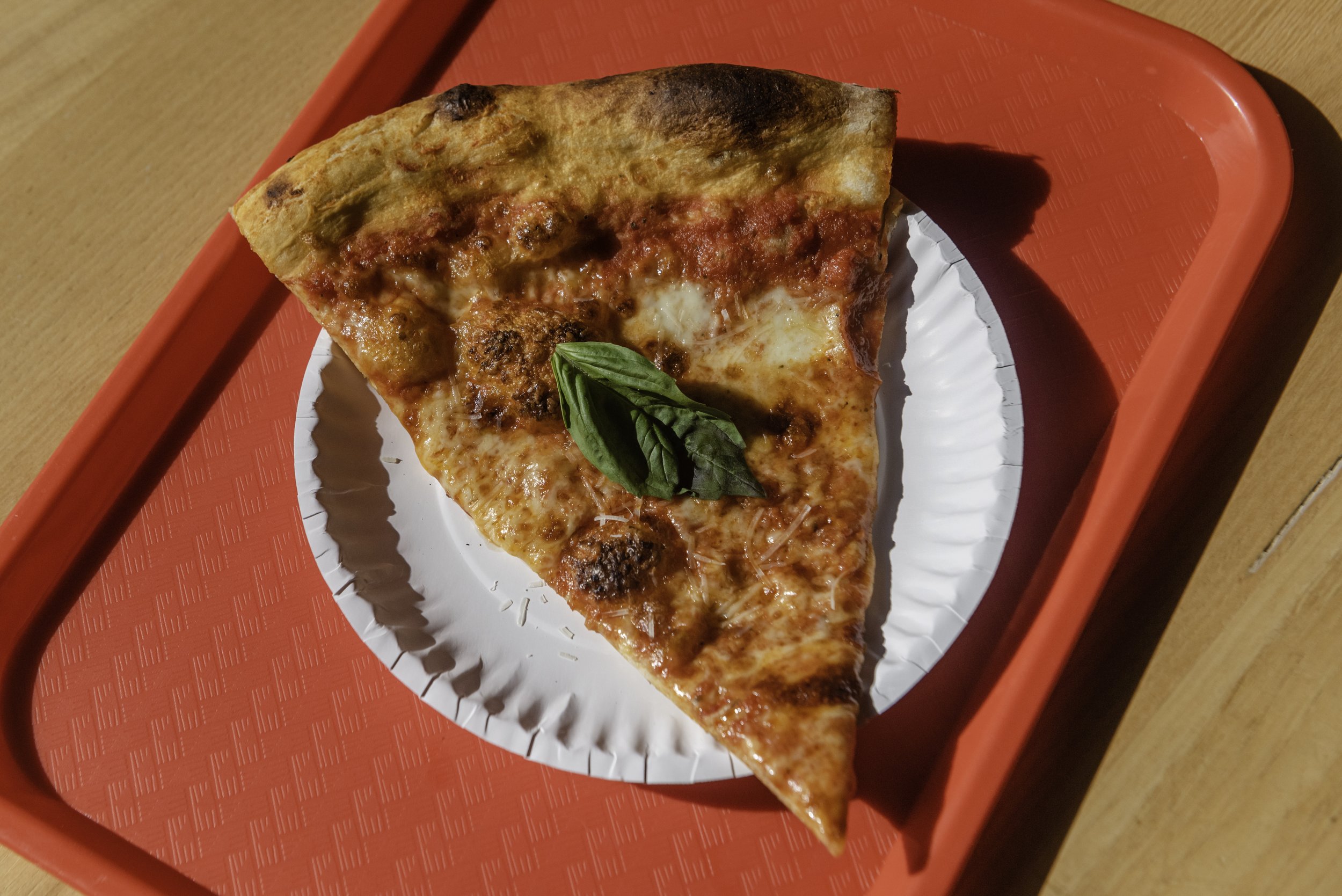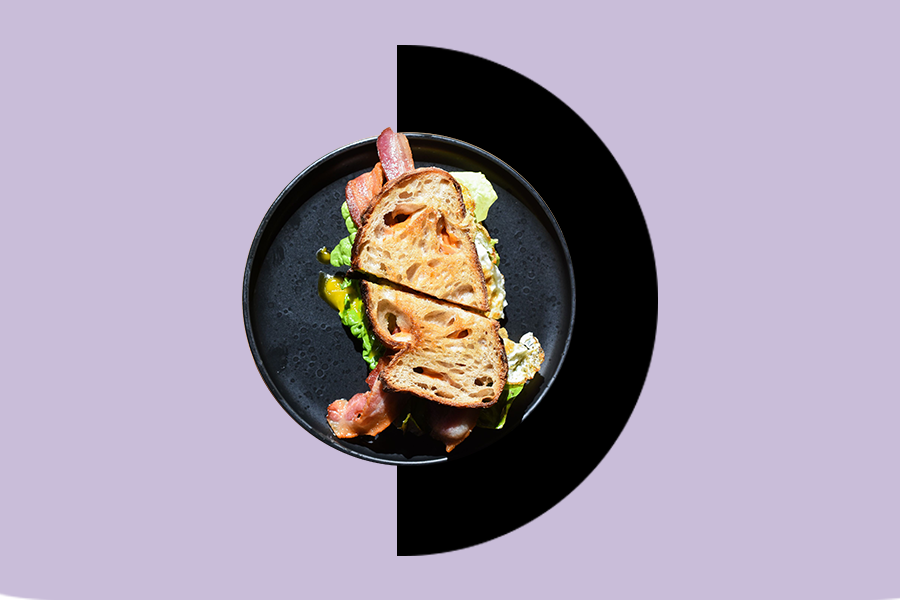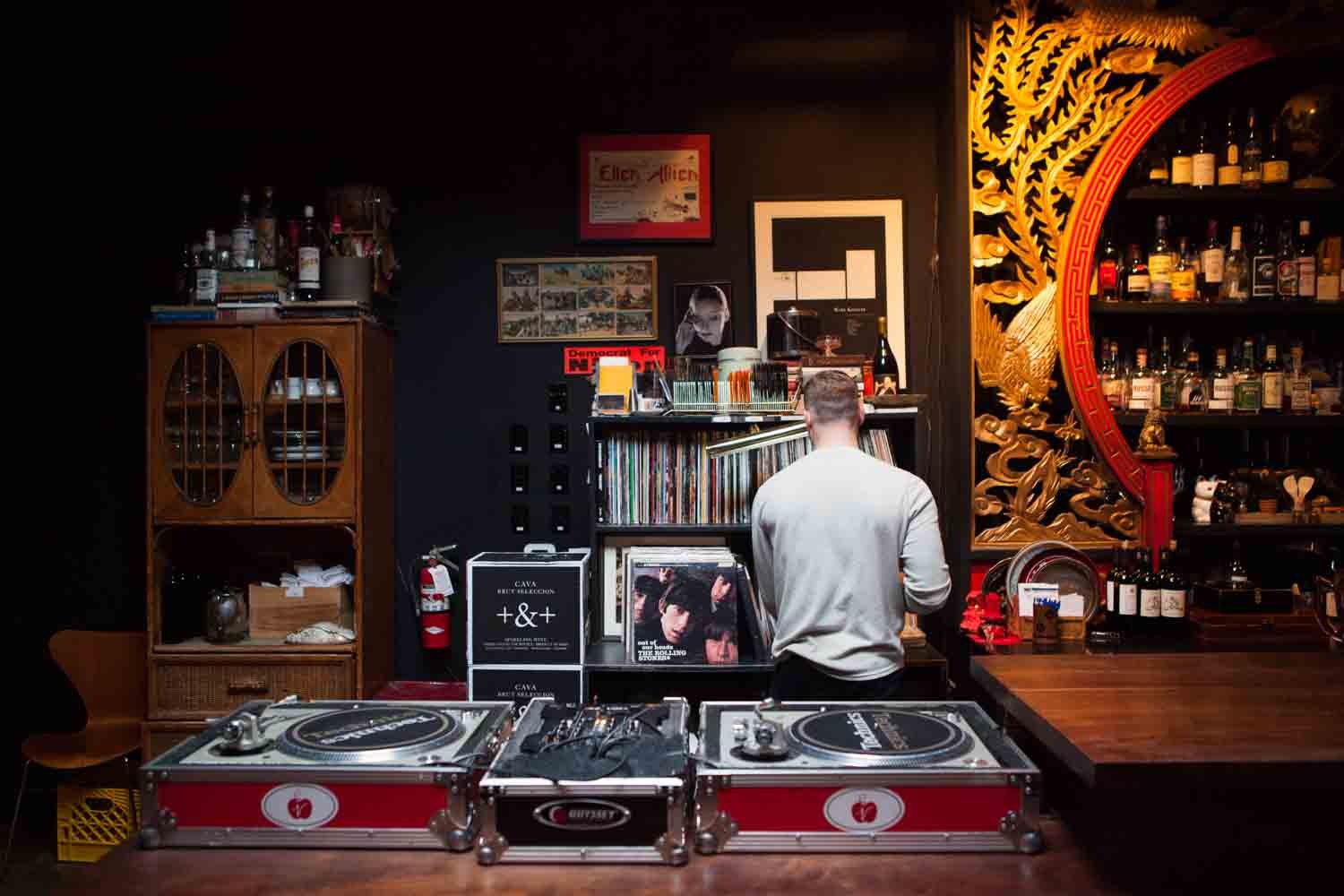Serving Vinyl
At Dept of Culture, Chef Ayo Balogun curates good food with good vibes.
Chef Ayo BalOguN | photos: raeann serra
On a dreary cold Friday morning, Chef Ayo Balogun stood in the middle of the dining room of his Nigerian supper club, Dept of Culture, cleaning records and brewing pour over coffee.
Dept of Culture is a tiny space in Bed Stuy. At the front of the room is a communal wood table that seats 16. The walls are split colored and hold old family portraits and the works of local artists. And on your way to the bathroom, which is located just past the compact, open kitchen, you pass a turntable perched on a short wooden shelf, with a small assortment of records that Balogun swaps in and out from his personal collection.
Music is a huge part of Balogun’s life. Growing up in Kwara, Nigeria in the 1980s, Balogun tuned in to plenty of western music artists—and his record collection substantiates his diverse music taste—but during a Dept of Culture dinner, he's only spinning records that take a look at his younger life. The meal is meant to place the diner in North-Central Nigeria, with Balogun curating a tasting menu with traditional Nigerian and Kwaran dishes like pepper soup, wara ati obe, and pounded yam. While the music, food, and stories are all personal to Balogun, the idea is to spark something greater among the diners: a sense of community. “My community is Nigeria, it’s Bed Stuy. That's what builds the whole place for us. Bed Stuy is my village now.”
Equipment
Any hardcore audiophile will tell you that playing records on substandard equipment is an affront to the artist’s original intent and vision. But for the Dept of Culture setup, Balgoun’s equipment needs were specific: he needed to have the exact make and model of receiver and speakers that were situated in his parents’ living room growing up. Surprisingly, the Kenwood brand pieces were an easy find for him on eBay. “I’m an eBay guy, I’m on eBay right now trying to find records, it becomes like a lifestyle.”
Playlist
Balogun's largely Nigerian team helps to curate a playlist for each service. The dishes and stories are as familiar to them as they are to Balogun, but it’s always subject to change once bodies fill the room and the meal begins. It’s a two-part system, to be able to match the vibe to the night's guests. But records make it tricky. Changing a record may be pleasant at home, but when it’s mid-service, the process can shift the whole vibe. “I really have to read the room. One record could really be working for the guy in the corner, but less so for the couple on the right. I might need to change the record early to achieve what I'm trying to get them to feel, without the guy who is vibing losing his steam. It’s like a social experiment.”
Speaker Placement
Balogun will often sit at different parts of the large communal table while playing records to see where the sound hits. Is the seat on the right getting too much bass? Is the person in the middle getting drowned out by the surrounding conversation? “I have to think about where the speakers are going to go for the night. And sometimes, I will even move them during service if I need to lift up one side of the room or the other.”
The Music
“Fela Kuti, everybody loves Fela. We always keep Fela here, it’s entry-level Nigerian music that people can easily get into. We just pick the music like we’re picking fruit.” When Balogun begins R&D, he keeps the records spinning to make sure it matches and evokes the feeling of the dish. “If I change the pepper, I change the record. It has to match. A certain record also makes me want to cook a certain dish sometimes—it brings me back to a very specific moment in my life.”

